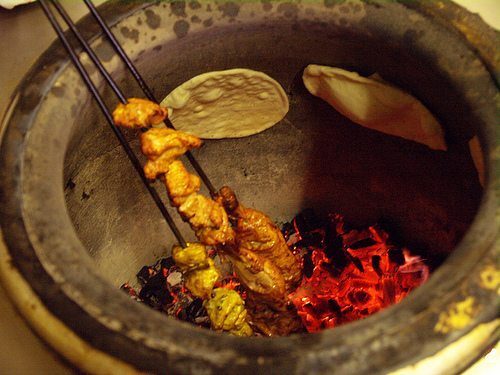Start-ups these days are usually based on mobile apps or websites – no one seems to put in the old-fashioned hard work of building something out in the real world.
That makes sense too – with apps like “Yo” receiving a million dollars in funding, it is hard to resist the temptation of cashing in on this opportunity. Additionally, you don’t require much capital or backing to start off as long as you have the skills to write the code and paint the picture. If your idea hits it off, the returns are great and if it doesn’t, then you can try again at the cost of more effort.
Without digressing further, MARO is a start-up idea that aims to change something in the real world.
The Idea
The idea is simple: healthier products (bread) coming out of “tandoors” (bread shops) along with better customer service while maintaining the price. Or in short, a better product at the same price.
Bread and tandoors are omnipresent concepts in Pakistan with small (usually one outlet) businesses dominating the sector. There are usually 3-4 employees working at each outlet – one person responsible for operating the oven and dealing with the customers and the others working with the dough. These shops are usually located close to residential areas and often close to each other indicating high levels of competition.
MARO wants to develop a network of tandoors that provide healthier products, perhaps through increasing hygiene control in the preparation process and procuring healthier flour or more varieties of it. This network will also try to provide better customer service, perhaps by designating a person to just exclusively deal with customers or by providing additional services like online ordering or delivery.
I have speculated on the methods as there wasn’t much information available on the idea beyond the basic intentions. However, there are a very limited number of options for embellishment or product extension in a service/product industry as simple as baking bread and selling it.
Never done before?
This doesn’t mean that there aren’t tandoors that have already done these two things and expanded their businesses – there are several larger establishments that pride themselves in better customer service and higher variety and quality of products. I am sure there are also small chains of these businesses present in bigger cities like Lahore and Karachi, although I am not personally aware of any.
Additionally, the element of competition mentioned earlier also keeps them on their toes as they are always at risk of losing business to the other tandoor in the area.
What makes MARO’s idea unique is the focus on the health aspect as well as potential branding and advertisement of a network of tandoors that can become a symbol of quality.
Good and Bad
Perhaps it’s about time someone tried to capitalize on this. Tandoors everywhere are poorly run in terms of hygiene standards and product standardization. You don’t hear stories of bread that made people sick, but the contents and hygiene in a majority of these places can’t really be called healthy. There’s no outcry on the effect bread has on health, but it’s common for customers to bring their own dough to the tandoors and just pay for the baking service.
About customer service, I’d say maybe the two Eids and Ramzan are the busiest and worst times to go to these places because their conventional system of maintaining a queue doesn’t work with crowds. But at other times, it’s pretty okay and bearable. The customer’s interaction is pretty limited: specify the order in terms of type and quantity of bread and then pick it up when it’s ready. Many tandoors have been in the neighborhoods for a long time and ,as a result, have a close personal relationship with their regular customers.
The Myth of the Price
The claim of being able to maintain the price for a higher quality product good and service would technically rely on the assumption that the current business model has high margins that can be cut into for competitiveness or that economies of scale will provide enough savings to compensate for the higher cost of better quality.
In a price-regulated market dependent on cheap labor and suffering from rising input costs, utility bills and shortage of gas and electricity, the margins are always shrinking. It would be interesting to see how MARO plans to maintain the price.
On the other hand, why does MARO want to maintain the price? This might just be the market where a little higher price maybe the signal of quality that customers need. Given that bread has not been causing epidemics in the country, the easiest market for healthier bread will be affluent people who would happily pay 20-30% above the usual market price to get a better product with more convenient customer service.
What’s next?
Let’s wait and see what the team behind MARO can achieve and bring to the market. They can certainly be a role model for other people with start-up ideas for the real world.


